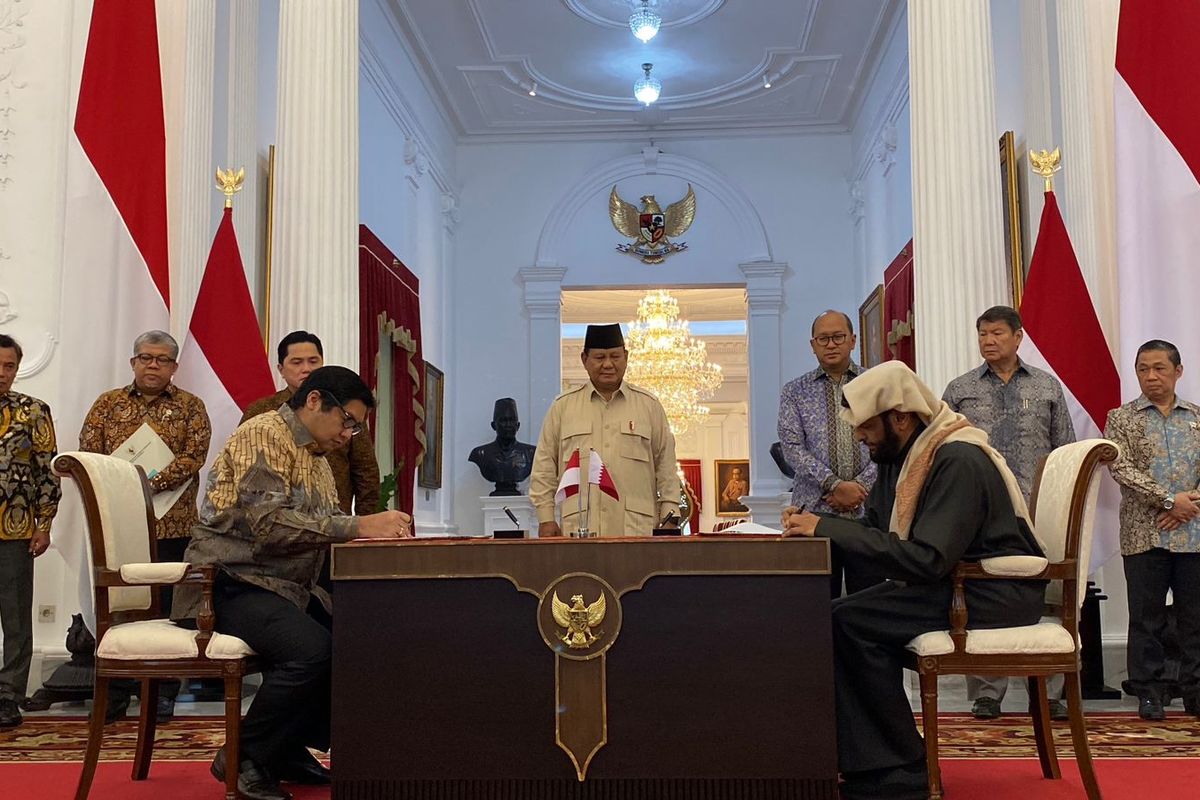Indonesia has taken another significant step in strengthening its economic ties with the Middle East, following the announcement that Qatar will invest US$2 billion into the Southeast Asian nation. The investment, facilitated through Danantara — an Indonesia Investment Authority (INA) subsidiary — was revealed during the Qatar-Indonesia Economic and Investment Forum in Doha. This commitment marks a major milestone in Qatar investment in Indonesia, signaling a new era of collaboration between the two countries.
Qatar's Investment Commitment: A Game-Changer
The US$2 billion investment is not just a diplomatic gesture; it reflects Qatar’s growing interest in Indonesia's economic potential. The agreement was signed by Danantara’s CEO Arief Baharudin and Qatari officials, with Defense Minister Prabowo Subianto present as a key representative of Indonesia. The deal aims to support various infrastructure and strategic sector initiatives across Indonesia.
Qatar’s investment strategy aligns with its goal of economic diversification under the Qatar National Vision 2030. For Indonesia, this investment brings in much-needed foreign capital, potentially accelerating national development projects such as renewable energy infrastructure, logistics, and the construction of affordable housing.
Why Qatar Sees Potential in Indonesia
Indonesia, with a population of over 270 million and a rapidly growing middle class, has become one of the most attractive emerging markets in Asia. Its ambitious development agenda, including President Jokowi’s ongoing infrastructure push and Prabowo’s plans for defense modernization and food security, makes it a fertile ground for long-term investment.
Moreover, the Indonesian Investment Authority (INA) has been actively seeking sovereign partners to co-invest in national projects. Qatar’s involvement reinforces trust in Indonesia’s macroeconomic stability and growth prospects. The signing of the Qatar investment in Indonesia also comes amid global efforts to realign foreign investment strategies toward emerging economies.
Strategic Sectors Targeted for Investment
While the exact projects to be funded by the US$2 billion have not yet been publicly disclosed, both governments have signaled interest in the following areas:
1. Infrastructure and Housing
One of the immediate applications for this funding could be the development of Indonesia’s ambitious 3 million housing program. The Indonesian government has consistently emphasized the need for foreign partners to help finance and develop housing for its growing urban population. Prabowo, who accompanied the delegation, highlighted this need at the forum.
2. Renewable Energy
As Indonesia moves to meet its climate goals and transition from coal, renewable energy presents a significant investment opportunity. Qatar’s experience in energy infrastructure could be a valuable asset in supporting Indonesia’s renewable transformation.
3. Logistics and Transportation
Indonesia’s archipelagic geography requires robust logistics infrastructure. The Qatar investment in Indonesia could support the construction of ports, airports, and inter-island transportation systems to better integrate the nation’s supply chain.
Diplomatic and Economic Implications
This latest deal between Indonesia and Qatar is not just about economic development — it is also a powerful diplomatic signal. In recent years, Indonesia has increasingly turned to the Middle East for partnerships in trade, defense, and energy. The presence of high-level delegates at the forum, including Prabowo, showcases Indonesia’s serious intent to elevate bilateral ties.
Furthermore, the establishment of Danantara as a dedicated investment vehicle strengthens transparency and trust between the two countries. As a sovereign wealth fund under INA, Danantara provides an institutional framework to ensure proper allocation, monitoring, and return on investment — a key concern for foreign investors.
Challenges and Opportunities
Despite the optimistic outlook, several challenges remain. Infrastructure projects in Indonesia are often hampered by regulatory delays, land acquisition hurdles, and bureaucratic red tape. However, the government's continued focus on investment reform, including the Omnibus Law and the Online Single Submission (OSS) system, are steps in the right direction.
On the other hand, the opportunity for Indonesia to become a regional hub for Middle Eastern investment is growing. As geopolitical shifts push Gulf countries to diversify their investments outside traditional Western markets, Southeast Asia — particularly Indonesia — is becoming more attractive.
Looking Ahead: A Sustainable Partnership
The US$2 billion Qatar investment in Indonesia through Danantara is likely to be just the beginning. With a successful implementation, it can open doors for further investment not only from Qatar but from other GCC countries. Indonesia could leverage this momentum to attract funds for its new capital city (Nusantara), its defense industry, and food security programs.
Moreover, this partnership sets a positive precedent for future government-to-government investment collaborations. By combining Qatar’s financial strength with Indonesia’s development needs, the partnership can bring transformative change to the region.
Conclusion
The Qatar investment in Indonesia represents a pivotal moment in the bilateral relationship between the two nations. As Qatar commits US$2 billion through Danantara, Indonesia gains a strong financial partner to support its ambitious economic and infrastructure goals. For both countries, this is a strategic and forward-looking partnership that reflects the new direction of global investment flows.
With continued cooperation, clear regulation, and mutual trust, this partnership could evolve into a long-term alliance that reshapes Indonesia’s development path and enhances Qatar’s global investment footprint.
Read More






 Monday, 09-02-26
Monday, 09-02-26







